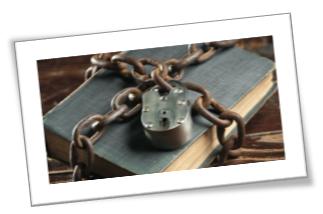Pastoral Care – The Internet and Sexual Addiction
Pastoral Care – The Internet and Sexual Addiction
In a previous article we outlined the problem of sex addiction through the internet. In this article we hone in on the pastoral care. We can distinguish between help from a distance (using email) and help in a pastoral conversation. Besides this, a course of professional help and assistance may be necessary. We hope to address the latter in a subsequent article.
 Sin is often characterized by sneakiness. That is certainly true when it concerns sexual sins. We put it away into the corners of our mind. We do not want to admit our problem to others. We don’t want to bring it to God.
Sin is often characterized by sneakiness. That is certainly true when it concerns sexual sins. We put it away into the corners of our mind. We do not want to admit our problem to others. We don’t want to bring it to God.
Psalm 32 speaks of the blessing of confession of guilt. David kept quiet for a time about his sins, some of which were sexual. To him this appeared to be the right solution, a good way to survive. Later on he admits, “When I kept silent, my bones wasted away” (verse 3). David is languishing. His peace with God is in jeopardy; his joy of life wastes away, and his strength of faith is shriveling. How does this come about? He remains silent about his sin.
He needs the pastoral finger of the prophet Nathan. He breaks through the vicious circle of silence – of wasting away – of becoming estranged from God and from his fellow men. David begins to speak out, to confess his guilt, to open himself up to God and to his neighbour. That’s a blessing, but not just for David!
No Secrets⤒🔗
In this article a plea is made for openness when it comes to the matter of internet and sexual addiction. “Un-sneaking” is not a word found in the English dictionary, but in this connection it clearly indicates what we mean. In the Bible we also read of a breaking of the silence when it concerns a life in sin. In Romans 13:12 we read of the need to cast off the works of darkness.
Sex is a strong force and it has an inherent potential to become an idol. It can only be removed by going to the only true God, who is our loving Father in Christ, and to ask for his grace. Venus and her internet daughter must be kept on the leash of faith in God. Sexuality is a tremendous gift from God, but not for nothing did the Lord place it within the framework of marriage; otherwise we will hurt our fingers on the sharp edges.
Digital Confessional Box←⤒🔗
Pastoral help can (partially) take place from a distance. Since the year 2000, the author has maintained a website. From the start, questions began to come in about sexuality. No doubt that has a lot to do with the anonymity with which you can ask questions or pour out your heart. A minister online is quite something else than a minister on the other side of the desk. More than once a message will start along the lines of, “What I am telling you I have never shared with anyone else.” Often the messages come in during the early hours, 1:34 AM, or 2:16 AM. “I am a 30-year-old man and I struggle with porn. I am a Christian, I have a loving wife, but I have a big problem.” This type of message comes in every week. Total strangers pour out their heart, sometimes two to three pages filled with disappointments and pain, with stories of failed intentions and stumbling relationships.
On the site as well as in personal discussions it becomes quite clear what is all forfeited with sexual addictions: peace with God, joy of faith, a happy marriage, the role you relish as father or mother, money that can be used for much better causes, loss of friendship and intimacy, and the development of your personality. There is way too much at stake for an addiction, which provides only a short-lived “high” or many hours spent in confined disillusionment and sinful fantasies. This can’t be God’s will, can it?!
What Can I Do about It?←⤒🔗
1. Forgiveness←↰⤒🔗
It is important to realize that this form of sexuality is wrong and not according to God’s intention with mankind. It is necessary to bring this sin in prayer to the Lord Jesus, every time. God will forgive the sins, whatever you are doing, as long as you admit true remorse about your sins. He forgives, even when you fall into the same sin time and again! Even when you feel you’re being such a hypocrite!
2. Living differently←↰⤒🔗
It is essential to break with this sinful lifestyle by expecting everything from God alone. Every time you disappoint yourself so terribly. “I am so hopelessly weak. I can only depend on God.”
3. Help yourself←↰⤒🔗
You need to do what you can. I will mention a few things:
-
 Get an internet filter. It is not foolproof, but even at 80-95% efficiency it saves you from a lot of garbage.
Get an internet filter. It is not foolproof, but even at 80-95% efficiency it saves you from a lot of garbage. - When you go wrong and you acknowledge it, pray for God’s forgiveness and grace, and get rid of everything (delete pictures, wipe out your online history, trash your files, and empty the trash box.
- Turn off the computer when you don’t need it anymore.
- Put Bible texts on the computer, on your screensaver; make a startup screen showing folded hands.
- Make yourself spiritually resilient. For example, memorize Job 31:1 by heart; pray daily for discipline and moderation.
4. Ask others to help←↰⤒🔗
You are created to give and to receive love. Exercise yourself in intimacy. Find stability and security with someone else. Talk about it with someone you trust. This can be your minister, elder, your wife or husband, a friend or a colleague. It’s exactly that sneakiness that stimulates your addiction. Open yourself up. Remember Psalm 32!
Helping and Being Helped←⤒🔗
Arriving at openness touches two people, the one who will confess and the one who listens. When this happens within the confines of marriage or an engagement, this will not be an easy thing, especially true also for the one listening. The worst outcome is that someone reacts angrily, “This is something I never expected from you and I insist that you stop immediately! End of discussion. I don’t want to talk about it.” That is a sinful attitude. In James 5:16 we read, “Confess your sins to one another and pray for one another.” This is in the context of pastoral work (ministers, elders, congregation members). Within a pastoral contact such a reaction will not be given. Not for nothing does the Form for Marriage make mention of “helping and assisting each other in everything.” I can imagine situations where openness as described above is not possible and where another Trusted adviser is needed. Don’t allow fear and self-preservation to be your driving force. It can be that the psychological or physical state of the husband or wife presents a reason to resort to others.
An Illustration “From the Other Side”←⤒🔗
In order to illustrate the importance of a good discussion I am passing on the story of a wife of someone who was addicted to sex via the internet. For obvious reasons I made it anonymous.
“I am a woman, thirty-six years old, mother of three children. My husband and I have been married for many years. When I read all these sad stories it gives me hope, because I now know the struggle my husband is going through. I have known for quite some time already that he watches porn on TV, and recently also on the net, but he has always denied it and it made me furious. Through these stories I now see how difficult it is to actually admit to a problem.
 “I want to ask all married men who are addicted to sex whether they will talk to their wives about their struggle. We wives are not without sin either, and we long for openness and trust. Together we can work through it. One husband said in his letter, ‘I don’t want to burden my wife with it.’ I don’t see it as a burden, but as a gift you want to share with me.
“I want to ask all married men who are addicted to sex whether they will talk to their wives about their struggle. We wives are not without sin either, and we long for openness and trust. Together we can work through it. One husband said in his letter, ‘I don’t want to burden my wife with it.’ I don’t see it as a burden, but as a gift you want to share with me.
“Just like God who forgives sin, who am I…? I am your wife and I love you, let’s do things together in good and bad times. It is a choice I make, my husband is working on changing it, and I am ready to face his problems and to talk about it. My wish is that all women reading this, who know about their husband’s problems, will not in pride raise themselves above their husband, but instead stand next to him.”
What about the Pastoral Conversation?←⤒🔗
Digital assistance is and remains distant help. The essential pastoral discussion is private, where together you open the Bible and pray to God.
Personally, I would warmly welcome it when colleagues would do more in terms of prevention in this area of internet and sexual addictions. This can be achieved through publishing opinion articles, stories of experience (of course, with agreement of the other party), and by showing ways to escape this enslavement, this valley of the shadows of death.
After this first line of care comes the pastoral line where some pastoral help can be provided in one or more visits. If because of the weight of the problem it is necessary to do more, a referral can be made to receive professional help. Because sexual addiction is a form of enslavement, it can be very persistent. When people continue to struggle it is good to engage solid Christian help. Enslavements will often arise in answer to painful circumstances or situations. In such cases, restoration is only possible when an addicted person learns to deal with things in another way.

Add new comment